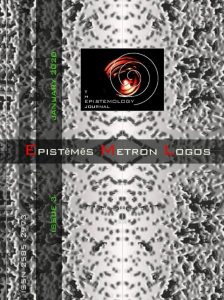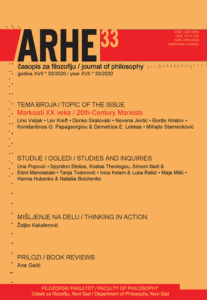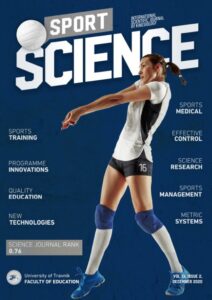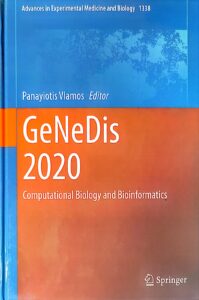Selected publications
Publication Types:

Verification in theory and in the sciences
In this work, we undertake the task of laying out some basic considerations towards straightening out the foundations of an abstract logical system. We venture to explain what theory is as well as what is not theory, to discriminate between the roles of truth in theory and in reality, as well as to open the road towards clarifying the relationship between theory and the real world. Etymological, cultural and conceptual analyses of truth are brought forth in order to reveal problems in modern approaches and to set the stage for more consistent solutions. One such problem addressed here is related to negation per se, to its asymmetry towards affirmative statements and to the essential ramifications of this duality with respect to the common perceptual and linguistic aspects of words indicating concepts akin to truth in various languages and to attitudes reflected and perpetuated in them and to their consequent use in attempted informal or formal logic and its understanding. Finally, a case study invoking the causes or “causes” of gravity both clarifies and reinforces the points made in this paper.

Towards the model of contributory expert generalists
The study of expertise has focused on the concept of specialization and specialists, both from a sociological and a biological perspective. It has been taken for granted that expertise concerns only specialization; even individuals characterized as “polymaths” or homo universalis are considered to be expert specialists in many fields. Can expert specialists in many fields exist today? This question is deceitful or irrelevant since it cannot accommodate the concept of individuals who are neither specialists nor “poly-specialists” but have knowledge of a different level: not analytic, but rather, synthetic and abstract. Here, a new type of expert is proposed, contributory expert generalist. Their necessity stems from the methodology of epistēmē proper. Their characteristics will be identified and discussed, some empirical examples will be given and their expert status is going to be discussed using various theoretical approaches on expertise, namely SEA, SEE and STS (Science of Exceptional Achievement, Study of Expertise and Experience, Science Technology and Society).

The Distal Method Coach Development for tennis: a new Paradigm in Coach Education
Coach Development Programs have multiple aims, for example, to provide trainers and educators with knowledge and tools, to keep them up to date or to refresh already known concepts. Distal Method is a generic method for motor-expertise attainment. It has been created based on findings from the scientific disciplines relevant to motor-expertise in order to develop world-class performers in motor-expertise-related domains. The Distal Method Coach Development (DMCD) for tennis is presented here. DMCD is in line with modern educational paradigms such as Physical Literacy (pedagogy), Deliberate Practice (Science of Exceptional Achievement) and the Secondary Synthetic Coach Model (SSCM). The aim of this article is twofold: i. to provide a broad overview of all the work done regarding the tennis DMCD over the years, and ii. to both fill the gap in tennis Coach Development systems and to provide a high standard in that area.

Expert characteristics: implications for expert systems
While expert systems are Artificial Intelligence (AI) agents, they share many common characteristics with human experts. As technology progresses, such systems are not just able to make simple decisions following “simplistic” linear logical protocols; they “behave” as real experts in at least two ways: by demonstrating superb decision-making skills and by conforming to the social norms for expertise, i.e. they “feel” as human experts. A review of the common characteristics of human experts may have important implications for the direction of the development for such systems. Implications for bioinformatics and future research (esp. concerning the accompanying concept of “expert generalist”) are also discussed.
